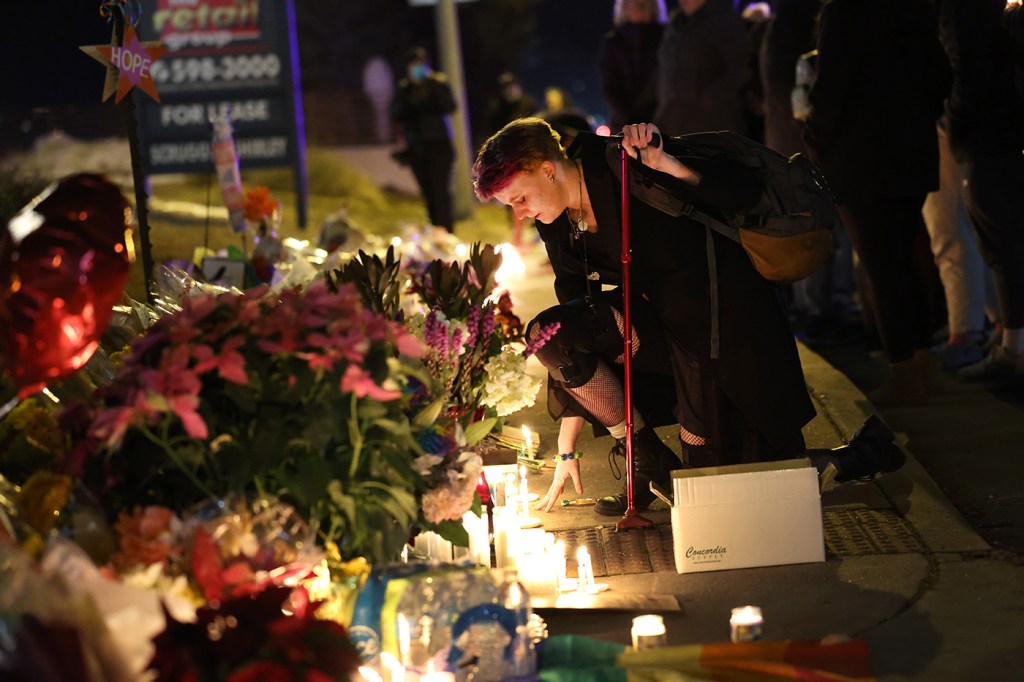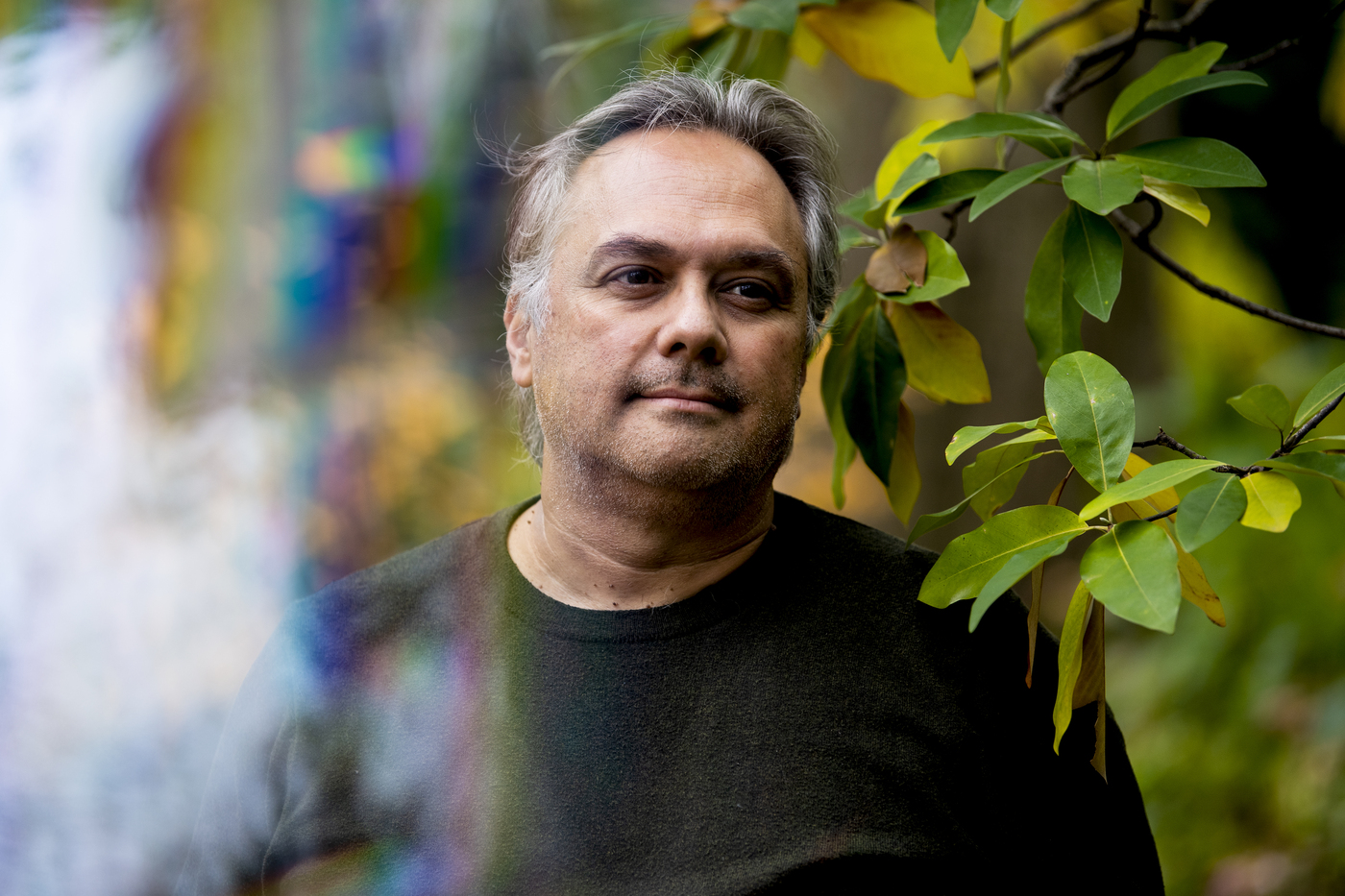In wake of Colorado Springs massacre, 2022 is deadliest year for mass shootings, Northeastern expert says

The United States is experiencing a record-setting year for mass shootings, according to James Alan Fox, a Northeastern professor who maintains the longest-running and most extensive data source on mass killings.
The growing number of casualties is fueled by tragedies like the recent mass shooting of five people at a Colorado nightclub—an event that has also contributed to a rise in hate crimes nationally, according to Carlos Cuevas, co-director of Northeastern’s Violence and Justice Research Lab.
“I’ve been studying mass killings for over 40 years and I am quite confident that there has never been a year where we’ve had so many,” says Fox, the Lipman Family Professor of Criminology, Law and Public Policy at Northeastern.

There have been 35 mass shootings in 2022, says Fox. The escalation has been driven by what Fox calls “an unprecedented surge” of 13 mass shootings resulting in four or more deaths since Oct. 3.
“That’s an average of about two mass shootings per week,” Fox says, “compared with the usual average of two per month.”
In addition to the recent mass shootings, this month has seen two mass killings not involving a gun, including the stabbing deaths of four University of Idaho students last week.
The U.S. has suffered 39 mass killings overall in 2022, says Fox.
The massacre at Club Q in Colorado Springs on Saturday has been identified as a hate crime, according to court records. Anderson Aldrich, 22, is accused of killing five people and injuring 25 more at the LGBTQ nightclub before two people tackled him.
U.S. hate crimes have risen over five of the past six years, according to FBI data. In 2020, the last full year for which records are available, there were 8,263 incidents.
“But that’s the very, very tip of a very big iceberg,” says Cuevas, a Northeastern professor of criminology and criminal justice.
More than 60% of the reported incidents in 2020 were motivated by race, ethnicity or ancestry. About 16% were based on sexual orientation, which appears to have driven the Colorado attack.
“That gives you a sense of the trend,” Cuevas says. “But it’s very much an underreported crime.”

The Colorado attack was preceded by a 2021 incident in which the bomb squad and crisis negotiators convinced Aldrich to surrender after he allegedly threatened his mother with a homemade bomb. But Aldrich’s weapons weren’t seized by authorities in an apparent failure to apply the state’s “red flag” law.
Fox says it is difficult to head off mass killings.
“It’s easier said than done to take dangerous weapons away from dangerous individuals,” says Fox, who manages the Associated Press/USA TODAY/Northeastern University Mass Killing Database. “In the aftermath, sure, we can all see what should have been done. But those warning signs are only crystal clear with 20-20 hindsight. It’s virtually impossible with any degree of reliability to identify mass killers in advance. There are countless numbers of angry or hateful people who seem to fit the profile but will never turn their angst into action.”
Much of the data supporting the effectiveness of red flag laws are based on suicide prevention, adds Fox.
“But suicide and homicide are very different,” Fox says. “Homicidal people react differently to an attempt to take their gun away than do suicidal people.”
Cuevas says the environment for hate crimes has been fed in part by an escalation in political rhetoric in recent years.
“Sadly, some of that coming from the upper levels of leadership in the country,” Cuevas says. “If you look at policies that have targeted the LGBTQIA community—some of the things we’ve seen targeting transgendered individuals, educational restrictions in Florida, things like that—that’s sending the message that for some reason these individuals should be not afforded the same rights as everybody else. And there are people who then will take that and say, ‘I need to do something about it.’
“Leaders in the community, leaders in politics, need to recognize that there are consequences to what they say,” Cuevas adds.
Cuevas has noticed that people are speaking out on behalf of afflicted groups that are targeted by hate crimes.
At the same time, Cuevas has noticed pushback against such rhetoric in social media and other forums.
“The [hate crime] numbers aren’t making me optimistic because they’ve been going up for a while,” Cuevas says. “My optimism is in the fact that the people who are supportive of these communities are pushing back, becoming as verbal and hopefully getting as much attention as the people who are stigmatizing and promoting hate toward these individuals.
“Whether it be for the LGBTQIA/gay community, whether it be for immigrant communities, whether it be for the African-American community or the Jewish-American community—whoever has been on the receiving end of this lately—I think the fact that the voices and support are starting to be as many and as loud as the voices against is the thing that encourages me,” Cuevas says. “Because for a long time, particularly in the recent past, the voices that promoted hate were much louder and getting much more attention. And I think that is hopefully starting to shift.”
For media inquiries, please contact media@northeastern.edu.





